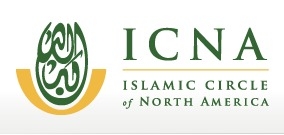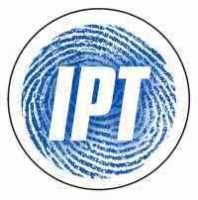Lawmakers Ask State Department to Investigate Jamaat-e-Islami’s U.S. Affiliate for Terror Financing
by Abha Shankar
IPT News
Investigative Project on Terrorism

Three U.S. House members have asked the State Department to investigate a prominent New York-based Islamist network and its charitable arms for possible terror financing.
In a Nov. 1 letter to the State Department’s Coordinator for Counterterrorism Nathan Sales, U.S. Reps. Jim Banks, R-Ind., Chuck Fleischmann, R-Tenn., and Randy Weber, R-Texas, asked “to further investigate the potential terror finance links between groups like ICNA [Islamic Circle of North America] and HHRD [Helping Hand for Relief and Development], and U.S. and UN Security Council designated terrorist groups like Lashkar-e-Taiba and Hizbul Mujahideen.”
Connections between ICNA, HHRD and South Asian radicals are well established.
ICNA is a leading “domestic affiliate” of the South Asian Sunni revivalist movement Jamaat-e-Islami (JI). HHRD, ICNA’s overseas charitable arm, reportedly has ties to U.S.-designated terrorist groups, Hizbul Mujahideen, and elements of the Lashkar-e-Taiba (LeT), which was behind the 2008 Mumbai terror attacks that left 164 people dead.
Jamaat-e-Islami was created in 1941 by Islamist ideologue Maulana Syed Abdul Ala Maududi in Lahore, Pakistan, which was then part of British India. Muslims, Maududi preached that “wherever you are, in whichever country you live, you must strive to change the wrong basis of government, and seize all powers to the rule and make laws from those who do not fear God.”
ICNA’s ideology echoes Maududi. Its literature says it was set up to establish “Iqamat Deen,” the Islamic system of life, in North America with the ultimate goal of founding a global Islamic state or Caliphate.
Maududi attended ICNA’s inaugural public event held in 1974 at Columbia University.
“There is no serious doubt that ICNA and HHRD are part of Jamaat-e-Islami’s international network,” the congressmen’s letter said.
A 2017 investigation by the Investigative Project on Terrorism found that HHRD partnered with the leader of Jamaat-e-Islami’s charitable arm, the Al Khidmat Welfare Society, to set up a hospital and rehabilitation center in Karachi, Pakistan. Hafiz Naeem ur Rehman, the Helping Hand partner, is closely tied to the U.S.-designated Kashmiri terrorist organization, Hizbul Mujahideen (HM), and its leader, Syed Salahuddin.
In August 2016, Rehman commemorated the “martyrdom” of Kashmiri terrorist Burhan Wani during a news conference with HM commander Salahuddin.
Salahuddin has “vowed to block any peaceful resolution to the Kashmir conflict, threatened to train more Kashmiri suicide bombers, and vowed to turn the Kashmir valley ‘into a graveyard for Indian forces.'”
A December 2017 HHRD event included leaders from the U.S.-designated terrorist groups Falah-i-Insaniyat Foundation’s (FIF), Milli Muslim League (MML), and the Al-Khidmat Foundation. FIF is an alias of LeT and MML is an offshoot of the LeT and Jamaat-ud-Dawa.
“HHRD’s partnership with Al-Khidmat is not relegated to this one conference. Indeed according to HHRD’s 2017 report, HHRD has done 214 different projects with Al-Khidmat,” the letter added.
In September, an ICNA member who collected donations at its charitable events was convicted of lying to the FBI.
Charges against Fareed Ahmed Khan, a naturalized U.S. citizen from Pakistan living in Manchester, Conn., reportedly grew out of a terror finance investigation. Khan, a car mechanic, received unexplained cash deposits of more than $200,000 into his bank account between 2007-2015. He used this money to buy online medical equipment which was selected by someone in Pakistan. Khan then repackaged and shipped the equipment to Pakistan.
Investigators were unable to determine whether Khan was embezzling funds from ICNA or whether other people were depositing cash into Khan’s accounts. But when questioned by federal agents, Khan lied, saying he was not part of ICNA and didn’t know people in it. The only packages he had ever sent to Pakistan, he claimed, were clothes for his sister and brother.
Khan also expressed support for jihad in conversations with a government informant: “Islam says that if you cannot participate in jihad, then you must support jihad with money, to help fund those who can participate—and if you cannot help support with money, you must, in your mind and heart, hate all those who are against Islam.”
Khan’s brother supported the Lashkar-associated Falah-e-Insaniyat Foundation (FIF), and “social media records … illustrate that the defendant’s brother requested the defendant to contribute to FIF,” prosecutors said.
“While it is possible that Khan was a rogue ICNA member, given further ties between ICNA and Falah-e-Insaniyat and other U.S. and UN Security Council designated terror groups, that should not be assumed,” the congressmen’s letter said, asking for investigating ICNA and HHRD for potential terror links given their ties to Lashkar-e-Taiba affiliates and Hizbul Mujahideen.
The Middle East Forum co-sponsored a panel discussion last Wednesday with the Investigative Project on Terrorism, Liberty South Asia, and South Asia Minorities Alliance Foundation (SAMAF) to discuss the threat from Jamaat-e-Islami and its affiliate network in the United States.
There, Rep. Banks described the JI as “a violent, theocratic group” that “has committed violent acts against minority Christians, Hindus, Buddhists, and the Ahmadi Muslims.”
“Jamaat-e-Islami has been especially active in South Asia with violent factions found in Bangladesh and Pakistan,” Banks said, adding that “much of the violence in Kashmir right now is linked to the two Jamaat-e-Islami [factions] as terrorist partners.”
A resolution Banks introduced in February said that “Jamaat-e-Islami and affiliated theocratic extremist groups pose an immediate and ongoing threat to stability and secular democracy in South Asia, leaving religious minorities at grave risk of continuing violence.”
It specifically named ICNA and its charitable organizations, ICNA Relief and Helping Hand for Relief and Development (HHRD), as JI’s “domestic affiliates” and called on the United States Agency for International Development, the State Department , the Department of Homeland Security and related agencies “to halt all partnerships and funding arrangements” with them.
Despite ICNA’s open propagation of JI’s Islamist ideology in North America and ties to South Asian jihadists and radical extremists, U.S. government officials and agencies continue to work with it.
In 2016, for example, ICNA reportedly received a $1.3 million grant from the Department of Homeland Security. It received more than $10 million from the Federal Emergency Management Agency in 2016 and 2018 for disaster relief work.
The author of this story, who also participated on the panel, shared findings from a June IPT report that focused on ICNA’s deep roots in the Jamaat-e-Islami and radical leadership. In 2013, for example, ICNA’s former vice president Ashrafuzzaman Khan was convicted in absentia and sentenced to death by a Bangladesh war crimes tribunal. The tribunal found that Khan was the “Commander in Chief” of the Al-Badr killing squad, a militant offshoot of the Jamaat-e-Islami. Khan allegedly participated in the murder of 18 Bangladeshi intellectuals during the country’s 1971 Liberation War.
I noted ICNA’s activism about Kashmir that includes conventions featuring high-profile U.S.-based Kashmiri separatist leaders and activists, such as convicted Pakistani spy and lobbyist Ghulam Nabi Fai. The organization excoriates India for what it calls “state-sponsored terrorism in Kashmir.”
South Asia Minority Alliance Chairman Nadeem Nusrat, who also heads Voice of Karachi, equated Islamist movements like Jamaat-e-Islami and the Muslim Brotherhood (MB) with terrorist groups such as al-Qaida, Islamic State, and Lashkar-e-Taiba.
“They’re all one,” he said. There was a “striking resemblance” between the ideologies of the Muslim Brotherhood and JI and cautioned against the “politicization of Islam” that has turned “Islam into a way of governance rather than a personal means of salvation.”
ICNA’s promotion of an Islamist ideology and grand ambition to establish a global caliphate, its close ties with the Jamaat-e-Islami and Kashmiri jihadist groups, set it apart from a mainstream religious group. That’s why Banks and his colleagues want the government to find out more.

The Investigative Project on Terrorism kindly allows Modern Tokyo Times to publish their articles. This important think tank provides essential information in the area of terrorism.
https://twitter.com/TheIPT Investigative Project on Terrorism twitter account
http://www.investigativeproject.org/ – Investigative Project on Terrorism
https://www.investigativeproject.org/8172/lawmakers-ask-state-department-to-investigate